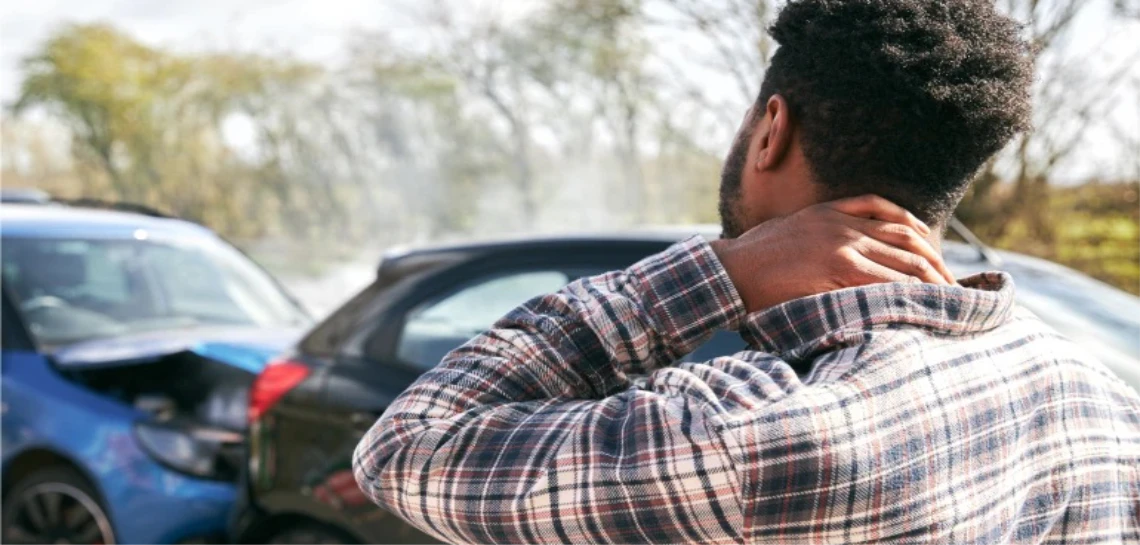
A car accident can be a jarring experience, leaving behind physical damage and lasting effects on your well-being. One such aftermath that often lingers is back pain, a silent yet significant reminder of the impact.
Explore the complexities of back pain after a car accident, exploring its underlying causes, potential injuries, medical evaluations, legal considerations, and proactive measures to navigate recovery.
What causes back pain after a car accident?
Back pain after a car accident can stem from various factors, often resulting from the sudden and forceful impact that vehicle collisions generate. Some common causes of back pain and worst car accident injuries may include:
- Whiplash: The rapid forward and backward movement of the head and neck during a collision can strain the muscles and ligaments in the neck and upper back, leading to whiplash-related pain.
- Spinal Misalignment: The force of impact can jolt the spine out of its natural alignment, causing discomfort and pain in the back.
- Herniated Discs: The impact can lead to discs between the spinal vertebrae becoming herniated or bulging, resulting in nerve compression and back pain.
- Sprains and Strains: The abrupt deceleration during a collision can cause sprains (stretching or tearing of ligaments) and strains (overstretching or tearing of muscles or tendons), leading to back pain.
- Fractures: Severe accidents can cause vertebral fractures, which not only result in immediate pain but can also have long-term effects.
- Soft Tissue Injuries: Injuries to soft tissues such as muscles, ligaments, and tendons can occur due to the impact, leading to inflammation and pain.
- Pre-existing Conditions: A car accident can exacerbate existing back conditions, making them more painful and symptomatic.
- Seatbelt Impact: While seatbelts save lives, they can also cause bruising and discomfort around the area where they are positioned, contributing to back pain.
Sometimes, serious injuries may result after a car accident, such as headaches or brain swelling, apart from severe back injuries.
What should I do if I experience back pain after a car accident?
If you experience back pain after a car accident, it is essential to prioritize your health and well-being. First, seek medical attention promptly, even if the pain seems minor. A medical professional can evaluate the extent of your injuries and recommend appropriate treatment. Rest and avoid strenuous activities that could exacerbate the pain.
Keep track of your symptoms, noting the location, intensity, and any changes over time. If you intend to file an insurance claim or pursue legal action, document your injuries and medical treatment thoroughly.
When do symptoms of back pain after a car accident start?
Symptoms of back ache after a car accident can vary widely and may not always appear immediately. While some individuals might experience pain and discomfort right after the collision, others might not notice significant symptoms until hours, days, or weeks later.
This delayed lower back pain after a car accident is not uncommon and can be attributed to factors like adrenaline masking pain, inflammation taking time to develop, or underlying injuries becoming more pronounced. It is crucial to remain vigilant about any changes in your physical well-being after an accident, even if you don’t immediately feel pain.
Treatment for Back Injuries
Treatment if your back hurts after a car crash can vary based on the severity and type of injury. Common treatments include:
- Rest and Ice: Resting the injured area and applying ice can help reduce inflammation and pain.
- Pain Medication: Over-the-counter or prescribed pain relievers can alleviate discomfort.
- Physical Therapy: Therapeutic exercises and stretches can improve flexibility, strength, and mobility.
- Chiropractic Care: Chiropractors can adjust the spinal to realign the spine and relieve pain.
- Heat Therapy: Applying heat can relax muscles and ease tension in the affected area.
- Epidural Steroid Injections: For severe pain, injections can reduce inflammation around spinal nerves.
- Bracing or Support: Back braces or supports can stabilize the injured area during healing.
- Surgery: In extreme cases, surgical intervention may be necessary to repair fractures or herniated discs.
- Alternative Therapies: Acupuncture, massage, and other therapies can aid pain relief and relaxation.
- Consultation with Specialists: Consulting orthopedic doctors or neurosurgeons for severe injuries is crucial.
How Much Compensation Do You Get For Back Pain After A Car Accident?
The compensation for lower back pain after a car accident can encompass various factors, aiming to cover medical expenses, pain and suffering, and other losses. Common types of compensation include:
- Medical Bills: Coverage for medical treatment, hospital stays, surgeries, medications, therapy, and ongoing medical care related to the back injury.
- Lost Wages: Compensation for income lost due to missed work during recovery.
- Pain and Suffering: Compensation for physical pain, emotional distress, and diminished quality of life caused by the injury.
- Future Medical Expenses: Coverage for anticipated medical costs, including ongoing treatments, rehabilitation, and follow-up care.
- Loss of Earning Capacity: Compensation if the injury affects your ability to earn income in the future.
- Property Damage: Coverage for damage to your vehicle and personal belongings.
- Out-of-Pocket Expenses: Compensation for costs such as transportation to medical appointments, home modifications, and assistive devices.
- Emotional Distress: Compensation for psychological impact, anxiety, and trauma resulting from the accident and injury.
- Punitive Damages: In cases of extreme negligence, punitive damages might be awarded to punish the at-fault party.
Are you experiencing back pain after a car accident? Contact an injury law firm
Consulting a personal injury attorney with experience in car accidents can be beneficial. It is because they can guide you through potential legal steps and ensure your rights are protected. Timely intervention can prevent complications and promote a smoother path to recovery.
